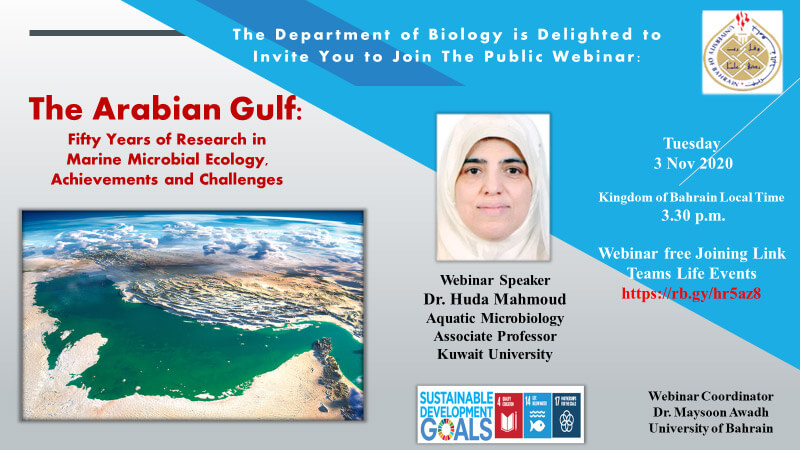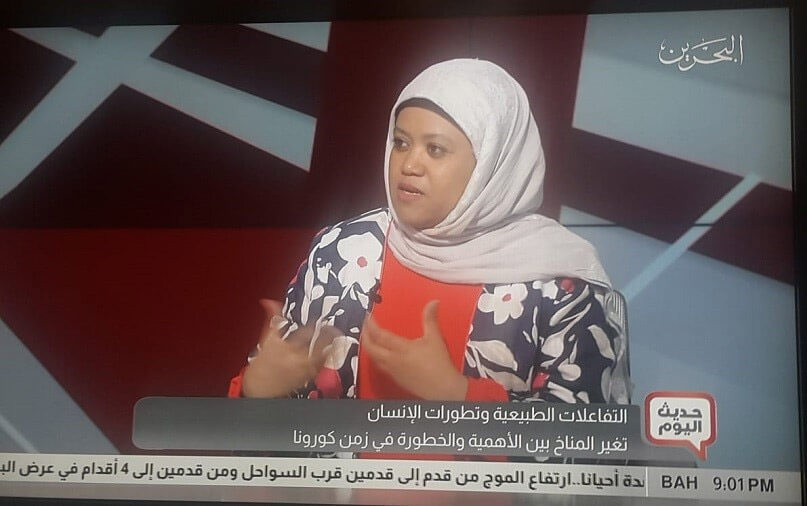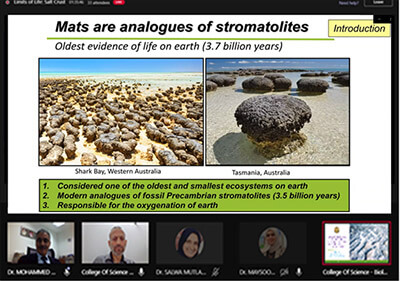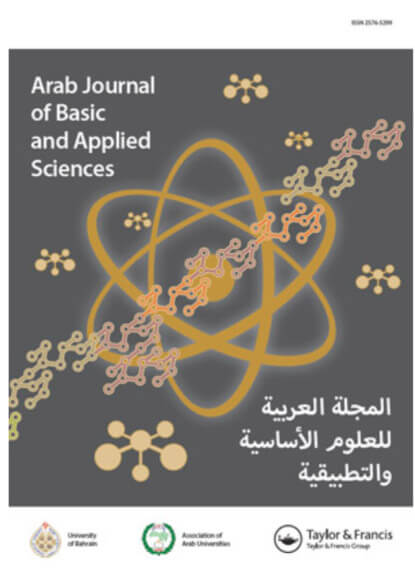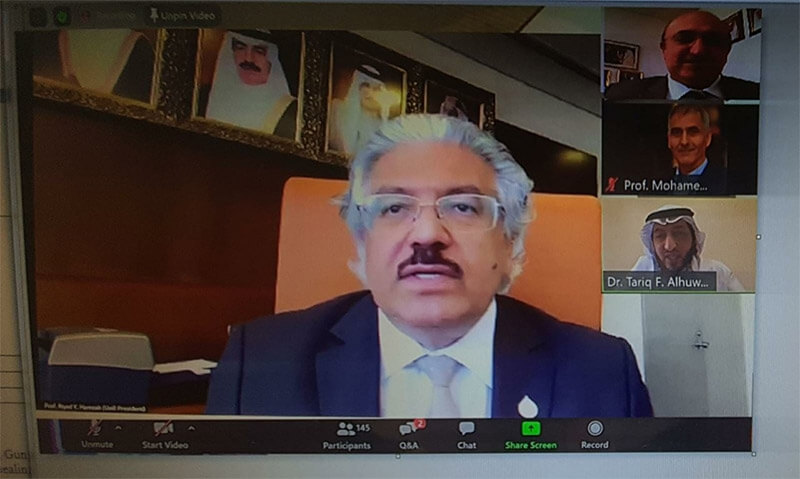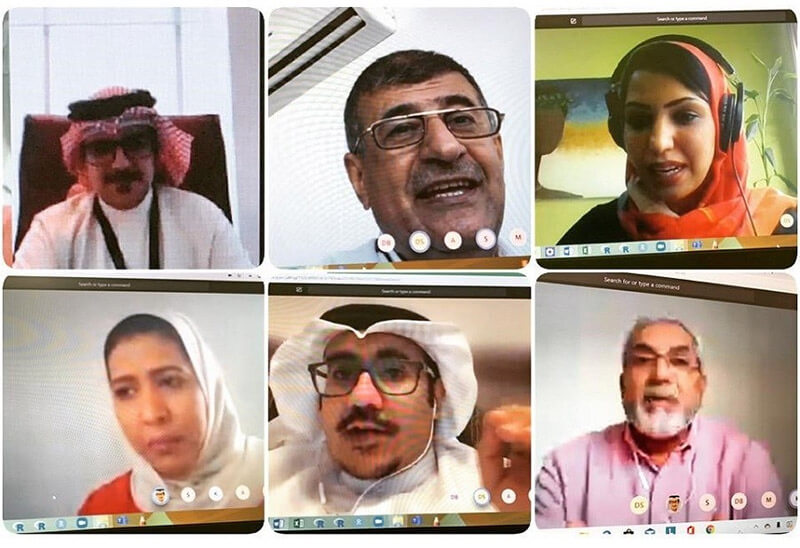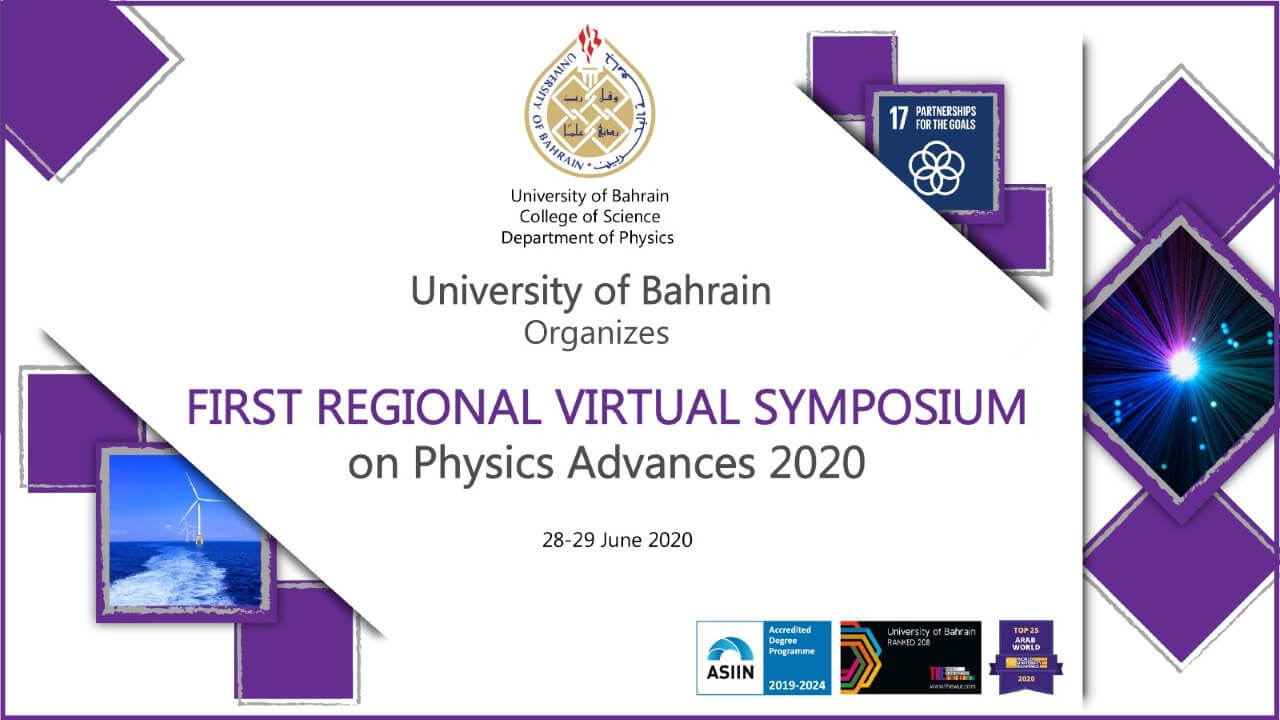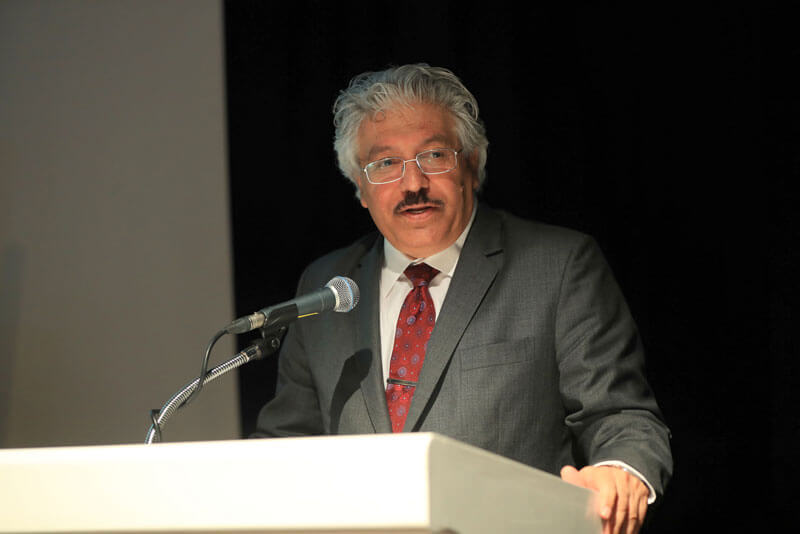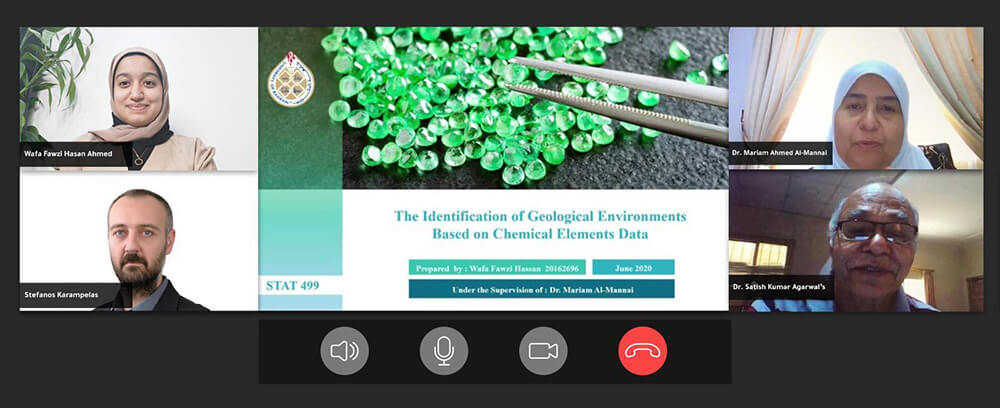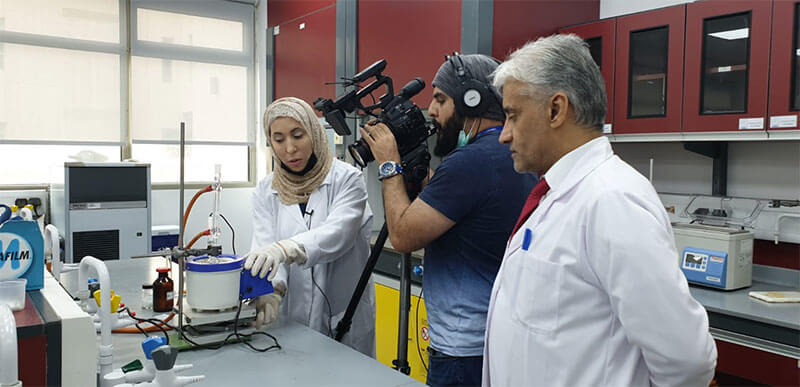Fifty Years of Marine Micro-Organisms Life Documentation in the Waters of the Arabian Gulf
Fifty Years of
Marine Micro-Organisms Life Documentation in the Waters of the Arabian Gulf
24 November 2020
The Associate Professor of
environmental sciences and marine micro-organisms in the Department of Life
Sciences and Marine Sciences at University of Kuwait, Dr. Huda Mahmood stated
that “Scientific research has documented the existence of biological diversity
of micro-organisms for more than fifty years in the waters of the Arabian Gulf,
indicating that despite the simplicity of such research, it still confirms the
existence of three important historical eras for marine micro-organisms in the
region. "
Dr. Mahmood stated the previous
in a remote lecture held under the sponsorship of the Dean of the College of
Science at the University of Bahrain (UOB), Dr. Mohammed Mustafa Al-Hilo,
titled “The Arabian Gulf: Fifty Years of Scientific Research Examining the
Environment of Micro-organisms: Achievements and Challenges”, which was
organized by the Department of Life Sciences in UOB in partnership with the
University of Kuwait.
Moreover, Dr. Mahmoud explained
that the three historical eras that studies of micro-marine organisms have gone
through are: the era of pre-nineties of the last century, in which research
focused on the biological diversity of marine micro-organisms, the
post-nineties era, where studies on the vital functions of these microorganisms
rose up, and the era of the beginning of the third millennium, where such
studies developed to include the study of biological and functional diversity,
in addition to the vital applications of these micro-organisms in the field of
serving the environment and humanity.
Also, Dr. Mahmood pointed out that there are many
research gaps in these studies, as they focus only on a very small percentage of
the biological diversity of these marine micro-organisms, due to the reliance
of these research on microbial culture techniques, which cannot reveal about
99% of the true diversity that exists in the waters of the Arabian Gulf.
Calling for the use of modern biotechnologies to study these marine micro-organisms,
such as the advanced and highly efficient "OMEX techniques" to detect
micro-organisms that can’t be cultured by traditional methods.
For their part, the Dean of the
College of Science, Prof. Dr. Mohammed Mustafa Al-Hilo, and the Head of the
Life Sciences Department at UOB, Dr. Salwa Mutlaq Al-Thawadi, welcomed the
joint cooperation in the field of research and scientific supervision of
postgraduate students between UOB and University of Kuwait.
Furthermore, the organizer and
director of the lecture, Assistant Professor of Environment and Molecular
Biotechnology at the Department of Life Sciences at UOB, Dr. Maison Nidham Awadh,
indicated the lecture's contribution to promoting the sustainable development
goals of the United Nations Development Program in Arab countries, pointing out
the great interaction of the participants in the lecture and their praise of
the scientific information presented, which opened horizons for conducting
joint scientific research in the field of life sciences.
4 Quality education
14 Life Below Water
17 Partnerships for the goals
Key Words
Biological diversity of marine micro-organisms in the
Arabian Gulf, Scientific Research, College of Science, University of Bahrain,
marine micro-organisms environment,

